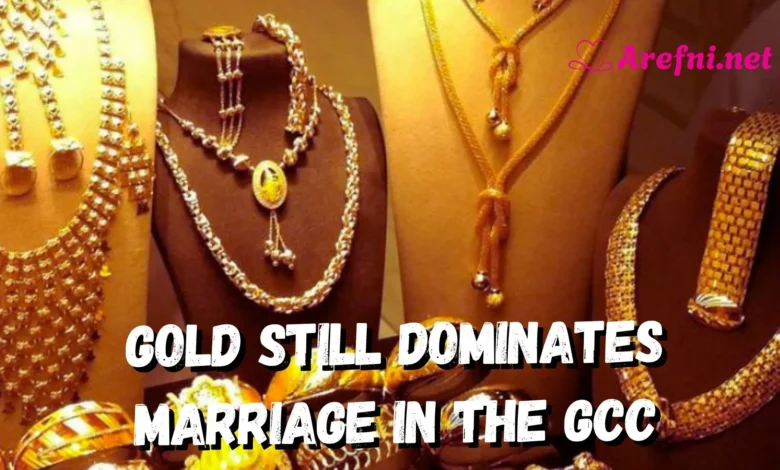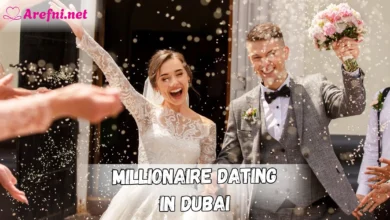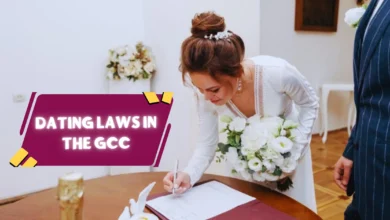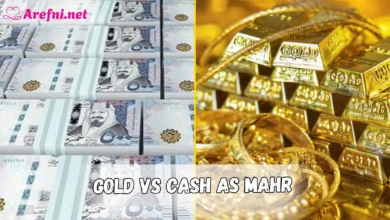Gold Still Dominates Marriage in the GCC
The Unshakable Reign of Gold in Arab Matrimony

In the glittering cities of Dubai, Riyadh, and Doha, where luxury and tradition intertwine, one matrimonial custom remains untouched by time: the gifting of gold. Across the Gulf Cooperation Council (GCC) nations Saudi Arabia, the United Arab Emirates (UAE), Qatar, Kuwait, Oman, and Bahrain gold is not merely a metal but a cornerstone of marriage proposals, symbolizing wealth, heritage, and enduring commitment.
Despite the influx of Western influences and modern engagement trends (like diamond rings), gold continues to dominate Gulf weddings. But why? What makes gold so irreplaceable in Arab matrimonial culture? This exploration uncovers the cultural, financial, and social forces that keep gold at the heart of GCC marriage traditions and why this practice is here to stay.
1. The Cultural and Historical Roots of Gold in GCC Marriages
Gold as a Symbol of Honor and Prestige
In the GCC, a marriage proposal is not just a romantic gesture but a public declaration of a family’s standing. The quantity and quality of gold gifted to the bride serve as a visible measure of the groom’s financial capability and social status.
-
The “Shabka” Tradition: In countries like Kuwait and Qatar, the groom presents the bride with a “Shabka” a set of gold jewelry (often including necklaces, bracelets, and earrings) during the engagement ceremony. The more lavish the Shabka, the greater the honor bestowed upon the bride’s family.
-
Wedding Displays (“Melcha/Yalwa”): In Saudi Arabia and the UAE, the bride’s gold is prominently displayed during wedding festivities, sometimes weighing several kilograms. This practice, known as “Melcha” (in Saudi) or “Yalwa” (in the UAE), is a public affirmation of the groom’s generosity.
Islamic Influence: Gold as Mahr (Dowry)
Islam mandates the Mahr, a mandatory gift from the groom to the bride, as a form of financial security. Historically, gold has been the preferred form of Mahr because:
-
It retains value (unlike cash, which can depreciate).
-
It is universally accepted as a high-value asset.
-
It ensures the bride’s financial independence, as the gold remains her sole property even in divorce.
Did You Know? In some GCC countries, brides receive “Dahab El-Hejab,” a gold coin necklace gifted by the groom’s mother as a blessing.
2. Gold as a Financial Safeguard in GCC Marriages
A Hedge Against Economic Uncertainty
The GCC has long relied on gold as a stable investment, especially in oil-dependent economies where currency fluctuations can occur. Families prefer gold over cash because:
-
Gold appreciates over time, unlike paper money.
-
It is inflation-resistant, protecting wealth against rising living costs.
-
It is liquid easily sold in gold souks across Dubai, Riyadh, and Doha.
Bridal Gold: A Woman’s Financial Security
Unlike in Western cultures, where engagement rings are often insured and sentimental, GCC brides treat gold as a tangible asset.
-
In case of financial hardship, the bride can sell her gold without legal complications.
-
In divorce, the gold remains hers, providing a safety net.
-
Many women inherit gold from mothers and grandmothers, creating generational wealth.
Case Study: In the UAE, gold shops report a 30% surge in sales before wedding seasons, as grooms rush to fulfill traditional expectations.
3. The Modern Evolution of Gold in GCC Proposals
From Traditional to Contemporary Designs
While 22K yellow gold remains the classic choice, modern brides are embracing:
-
18K white gold and rose gold (popular in Dubai’s luxury market).
-
Diamond-studded gold (blending Western and Arab tastes).
-
Customized name necklaces (trending among younger couples).
Luxury Brands vs. Local Goldsmiths
-
High-end brands like Cartier and Van Cleef & Arpels attract elite buyers.
-
Local jewelers like Malabar Gold and Damas dominate with customizable, culturally tailored designs.
Social Media’s Role in Gold Culture
Instagram and TikTok have transformed gold gifting into a public spectacle. Hashtags like #GCCBride and #ArabGold showcase extravagant jewelry sets, setting new standards for grooms.
4. Why Gold Beats Diamonds in GCC Proposals
Cultural Preference: Weight Over Sparkle
In Western engagements, a diamond ring is the star. In the GCC, the heavier the gold, the better.
-
A thin diamond band may be seen as “cheap” compared to a 500-gram gold set.
-
Gold’s value is measurable by weight, making it a transparent status symbol.
Gold Souks: The Heart of GCC Wedding Shopping
Cities like Deira (Dubai), Gold Souk Riyadh, and Souk Waqif (Doha) thrive on bridal gold sales, offering:
-
Tax-free shopping (UAE has 0% VAT on gold).
-
Competitive global pricing (Dubai gold is often cheaper than in Europe or the US).
5. Will the Gold Tradition Last? Future Trends
Millennials and Minimalism
Some younger couples opt for lightweight, sleek gold designs, but few abandon gold entirely.
Ethical Gold: A Growing Trend
Eco-conscious couples seek Fairtrade and recycled gold, aligning tradition with sustainability.
Digital Gold & Crypto Mahr?
A futuristic niche explores blockchain-based gold tokens as dowry, but physical gold remains king.
Gold’s Eternal Shine in GCC Marriages
From its roots in Islamic law to its role as a financial asset, gold’s dominance in GCC proposals is unshaken. While trends evolve, the cultural and economic significance of gold ensures its place in Arab weddings for generations.
For grooms, it’s an obligation; for brides, a birthright. And for the GCC, gold is forever.





